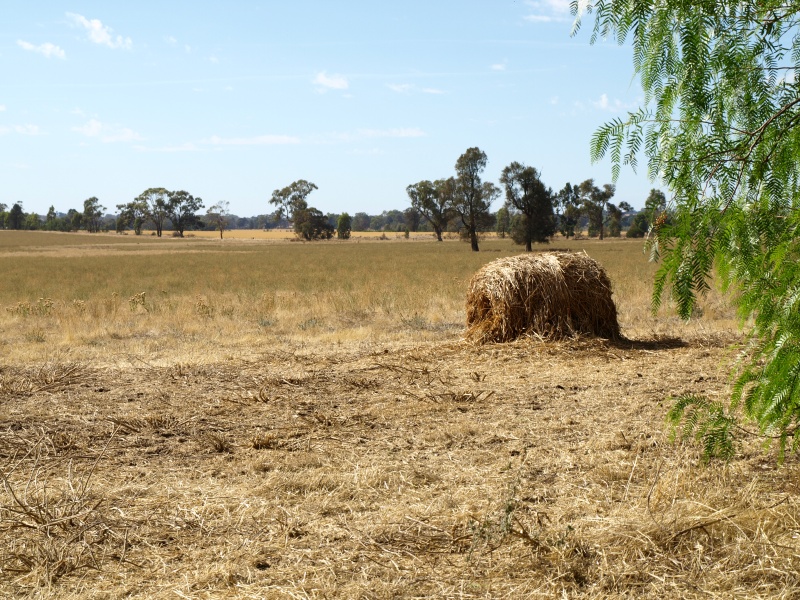By Patrick Stokes, Deakin University
As a general rule, one place you really don’t want to find yourself is in-between a Melburnian and a piece of real estate.
But one group of long-term city residents has been getting in the way of developers and planners for a very long time now. This is even more impressive when you consider these residents have been dead for well over a century.
The Queen Victoria Market’s carpark sits atop the city’s original cemetery, founded in the 1830s. Despite exhumations in the 1920s there are still thousands of bodies buried there, some at depth, others barely a foot beneath the surface.
Surveyor Robert Hoddle’s understandable lack of foresight in siting the cemetery so close to the CBD grid that bears his name has meant that the use of this land has long been a sensitive and difficult matter. Works over the years have had to negotiate the competing needs of the market (in more sense than one) and the non-economic needs of human remembrance, trying to combine mercantile and sacred space in a delicate balancing act.

jurek d.
Recently, City of Melbourne has proposed turning most of the existing carpark into a park as a sign of respect for those buried there – a far cry from the attitude of the 1930s, when a steam shovel was used to tear through the old cemetery to build the Franklin Street stores.
And yet questions have still been raised about whether the new plans show sufficient forbearance. The proposed extension of Franklin Street and commercial development at the southern end of the market precinct would potentially sit atop burial sites.
This clash between the call of the future and the depth of the past poses important questions for us here in the present: should the dead impede the activities of the living in this way? What, if anything, do we owe the dead?
It’s too easy to say “nothing”, that the dead simply don’t exist any more and any responsibilities we have regarding the dead are actually duties to the living. Even the unsentimental Aristotle thought it “heartless” to claim the dead couldn’t be harmed by events after their death, such as the fortunes of their descendants.

patrick wilken
There is a real question as to how we can harm or benefit a person who no longer exists, and philosophers have tried to answer this question in a number of ways. An influential answer, first offered by Thomas Nagel, is that just as we can harm someone at a great spatial distance, say by betraying them, we can also harm them at a temporal distance as well.
So when, for instance, Colin Campbell Ross was pardoned for Melbourne’s Gun Alley Murder, 86 years after he was wrongfully convicted and hanged, this was justice for Ross, not for the living.
I’ve argued previously that the dead persist phenomenally in our recollection – not as conscious selves, but nonetheless as the objects of loving attention they were for us while they lived – and that this gives us a responsibility to maintain that memory.

Martijn Witlox
Sartre said the dead are “prey” to the living, but they are also our dependants: without our maintenance they slip away into oblivion, into what Goethe called the “second death” of being forgotten.
Yet those buried beneath the Queen Vic are beyond memory. There are no direct personal bonds between the living and the dead in this case, no personal promises left to honour or break. Whatever connections of blood or allegiance we might have to these people are lost in their anonymity. Each is, for us, simply a distinct token of humanity, and whatever we owe them, we owe them simply as human beings.
Kierkegaard declared that remembering the dead was the purest act of love, because the dead can neither repay us for our trouble nor force us to remember them. This work of love is harder when the dead are beyond human memory, stripped of their identity and decomposed into a body that can only be reconstructed, not recognised, and described only through general categories – age, height, sex.
But the sense remains that even these remains are those of distinctive persons, objects of someone’s loving regard even if they remain unknowable to us.

Known Unto God, Acroma Knightsbridge Cemetery near Tobruk, Libya.
gordontour
The inscription “Known Unto God” on the gravestones of unknown soldiers picks out something like this: to us these are perhaps just bones, but someone – God, at least, for the epitaph-writers of the Great War – knew this person in their distinctive fullness. They lived. And that they lived deserves to be respected.
The reason we’re horrified by the thought of a steam shovel tearing up the old cemetery is not that we’re superstitious or have taken metaphors about the “resting place” of the dead too literally. It’s that the dead continue to demand a respect that extends to how we treat their remains, however far removed these might be from the full, living person they once were.
The dead, in a way, have a right to be awkward. They should be an obstruction, something the living need to work around, because in doing so we refuse to quarantine them from the realm of what is.
The rights of those buried beneath the market carpark are of course no more absolute than those of any other Melburnians. It would be silly to deny that the living have a far greater claim on us, and the demands of the dead are easily outweighed by other considerations. But that doesn’t mean the dead have no claim on us at all.
The continued sensitive management of this site isn’t simply a piece of good urban planning or canny politics. It’s a work of love.
![]()
Patrick Stokes does not work for, consult to, own shares in or receive funding from any company or organisation that would benefit from this article, and has no relevant affiliations.
This article was originally published on The Conversation.
Read the original article.













